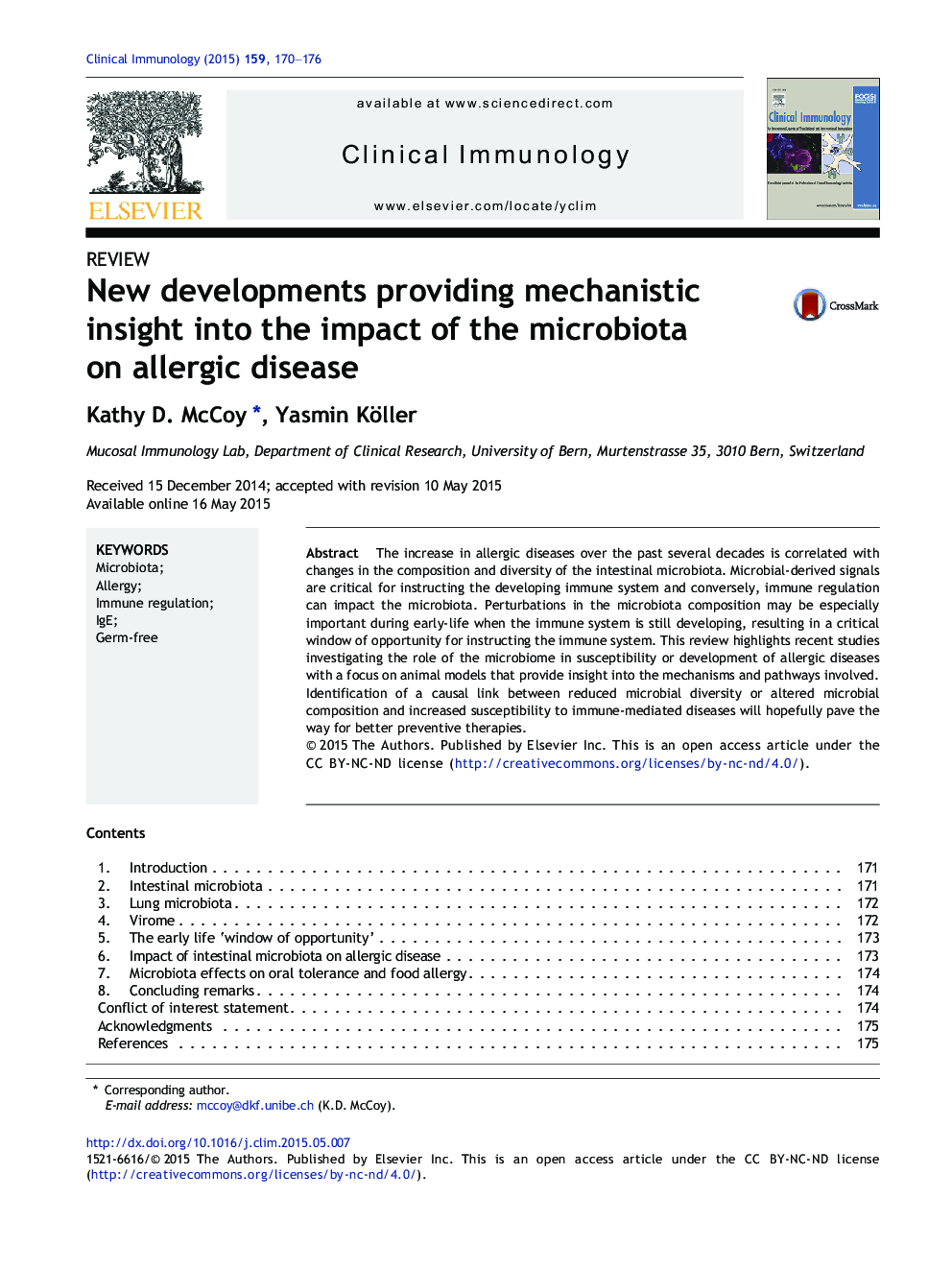| Article ID | Journal | Published Year | Pages | File Type |
|---|---|---|---|---|
| 6087310 | Clinical Immunology | 2015 | 7 Pages |
â¢Early microbial diversity negatively correlates with susceptibility to allergy.â¢A 'window of opportunity' in early life can establish immune regulation.â¢Animal models seek mechanisms linking microbial diversity and allergic disease.â¢Microbiota-based therapies for preventive treatment regimes are the ultimate goal.
The increase in allergic diseases over the past several decades is correlated with changes in the composition and diversity of the intestinal microbiota. Microbial-derived signals are critical for instructing the developing immune system and conversely, immune regulation can impact the microbiota. Perturbations in the microbiota composition may be especially important during early-life when the immune system is still developing, resulting in a critical window of opportunity for instructing the immune system. This review highlights recent studies investigating the role of the microbiome in susceptibility or development of allergic diseases with a focus on animal models that provide insight into the mechanisms and pathways involved. Identification of a causal link between reduced microbial diversity or altered microbial composition and increased susceptibility to immune-mediated diseases will hopefully pave the way for better preventive therapies.
